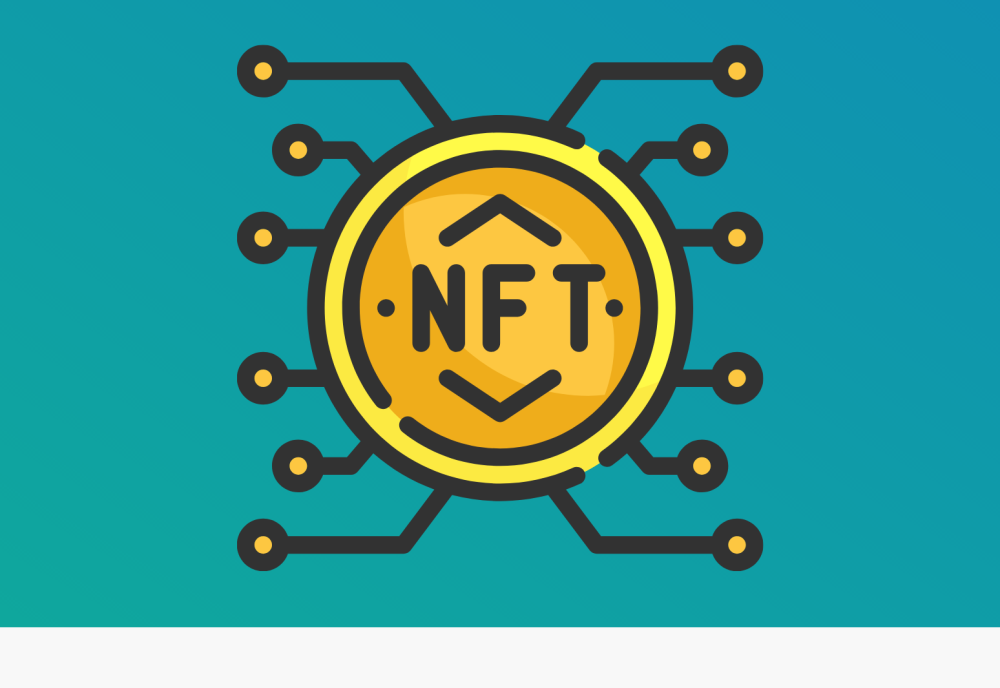Before a sale can be made, an NFT needs to be minted. But how do NFTs come to be stored on the blockchain? And how are you able to sell an NFT?
Non-fungible tokens (NFTs) are one-of-a-kind tokens that can’t be duplicated and have inherent value derived from their uniqueness.
But how do NFTs come to be stored on the blockchain? And how are you able to sell an NFT?
Before a sale can be made, an NFT needs to be minted.
We provide a basic overview of what the term minting means in the crypto space before diving into what it means to mint an NFT. Learn more about how you can mint your NFTs, potential costs, and the tax implications of NFT sales.
What does minting mean in crypto?
Minting crypto means transactions on the blockchain are validated and new assets are put into circulation.
What is the difference between mining and minting?
Minting is a part of both mining and staking.
When crypto is mined on a proof-of-work (PoW) blockchain like Bitcoin, you validate transactions and put new tokens into circulation. Once miners solve the block, it’s hashed and added to the chain—then new coins are minted and put into circulation.
On a proof-of-stake (PoS) blockchain like Ethereum, new blocks aren’t mined—blocks are staked. Crypto staking is the process of temporarily locking cryptocurrency in a specified wallet to activate software and become a validator for that blockchain.
Validators serve as the consensus mechanism and offer input on the true state of transaction history and records to create new blocks. The chosen validator who creates the new block is rewarded with the newly-minted coins. PoS networks rely on the economic incentive of a user’s staked funds to efficiently provide network security.
What does it mean to mint an NFT?
Minting an NFT means you take a digital file and turn it into a digital asset that can be stored on the blockchain.
Once it’s become a digital asset, your NFT can be put into circulation, and it can be sold via smart contract.
Is minting an NFT the same as buying it?
No. Minting an NFT is a process of creating an entirely new digital asset.
When you buy an NFT, you’re purchasing a pre-existing asset.
How do you mint an NFT?
Minting an NFT isn’t terribly complex. You can do either of the following:
- Use a pre-existing marketplace to help you
- Deploy the smart contracts and facilitate the minting yourself
Can you mint your own NFT?
Yes, you can mint your own NFT.
You will need the following:
- Media file you wish to mint
- Crypto wallet that can connect to the NFT marketplace of your choosing
- Crypto to cover the gas fees—discussed below; make sure you own a currency that’s accepted on the blockchain where you’re conducting the transaction
- Terms of your smart contract; many NFT marketplaces offer pre-existing sample contracts
Mint via marketplace
If you go the marketplace route, once you’ve chosen a marketplace, you upload a digital file and start the minting process.
Deploy your own smart contract and mint yourself
To complete this process on your own, choose an NFT standard to follow; ERC-721 and ERC-1155 are the most common on Ethereum. Implement this standard in your own smart contracts and deploy them to the blockchain network through a node.
Once the smart contract is deployed, you need to store the media object either on a centralized server or on a decentralized file system such as IPFS. Then you’ll be able to call the mint function in your NFT smart contract and supply the link to your media source to be included in the NFT’s metadata.
How much does it cost to mint an NFT?
The cost of minting an NFT depends on the marketplace and the transaction.
Some marketplaces will allow you to mint your NFTs for free; however, they might, in turn, require a percentage of your list price. Other platforms could require a trading fee if you want to move your NFT to another marketplace.
If you deploy and mint your NFT yourself, you’re only responsible for the on-chain fees.
One factor will come heavily into play with any on-chain interaction—gas fees.
What are gas fees for NFTs?
Gas fees could also be called transaction fees; they facilitate cryptocurrency transfers and smart contract executions. When you mint an NFT, most often you’ll need to pay for the computational power required to necessitate that action.
The higher the demand for a particular blockchain network, the greater the cost of a gas fee. On popular blockchains like Ethereum, gas fees fluctuate day-to-day and even hour-to-hour.
You can track gas fees, and it’s definitely a factor to keep in mind when you’re exploring NFT sales.
What are the tax implications of selling an NFT?
In most cases, NFTs are subject to the same tax laws as fungible cryptocurrencies.
The IRS has categorized fungible cryptocurrencies as property. And even though NFTs aren’t fungible, they still should qualify as personal property under the tax code.
It’s important to note, the IRS hasn’t formally announced how it will tax NFTs in certain situations, nor do most NFT platforms offer specific tax guidance for purchases and sales. It’s even more important to note that the lack of formal IRS and platform guidance doesn’t mean you can ignore paying taxes on NFTs.
The responsibility falls on you to keep a record of all of your NFT transactions and report them on your tax return.
Also, NFTs are taxed differently depending on whether you are a creator, a buyer or a seller. For a better understanding of how NFTs could potentially affect your tax filing, please read our complete NFT Tax Guide.
Other Resources:
For more information on how to add NFTs to your Taxbit account, please read our Help Center article.
If you’d like additional details about the Taxbit NFT Suite, you can find it here.
Don’t forget to check out other articles in our crypto education series:
- Blockchain 101: Learn the Basics of a New Technology
- What Is DeFi and How Does It Work?
- What Are Smart Contracts?
- What Are Crypto Airdrops and How Do They Work?
- What Is Crypto Staking and How Does It Work?
- What Are Stablecoins?
- What Is a DAO?
- Do I Have to Pay Taxes on Crypto? (Yes, Even if You Made Less Than $600)
About Taxbit
Keeping up with all the paperwork and reporting regulations for digital asset transactions can be laborious and time-consuming. The more complex your crypto portfolio becomes, the more complicated your tax liabilities can get.
Taxbit helps track your crypto transactions and fills out your tax forms automatically.
We also recognize the need to support your DeFi activity, and each day we’re actively working on expanding DeFi support to popular blockchains.
The initial version of our DeFi support allows you to sync in any transfers, trades, and approvals you’ve made on a DeFi platform involving ERC-20 tokens on the Ethereum network, or BEP-20 tokens on the Binance Smart Chain network.
Ready to try out the updates for yourself? Create an account or login to start.
.png)


